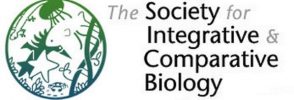Contents
- Division of Neurobiology, Neuroethology, and Sensory Biology: Newsletter Spring 2020
- Message from the Chair, Mike Baltzley, Chair.DNNSB@sicb.org
- Message from the Program Officer, Jeff Riffell, DPO.DNNSB@sicb.org
- Message from the Secretary, Lisa Mangiamele, Secretary.DNNSB@sicb.org
- Message from the Student/Postdoctoral Affairs Committee Representative, Maryam Kamran
- Best Student Presentation Awards
- DNNSB Chair Candidate Biographies
Division of Neurobiology, Neuroethology, and Sensory Biology: Newsletter Spring 2020
Please vote in the Spring 2020 Elections (candidate biographies can be found below). The deadline is April 19th, and the ballot can be found in the link provided here. http://burkclients.com/sicb/elections/2020.php
Message from the Chair, Mike Baltzley, Chair.DNNSB@sicb.org
I enjoyed seeing many of you at the SICB annual conference in Austin. In addition to co-sponsoring five symposia, our division had a full schedule of fantastic talks and posters! Thanks to the division members who presented their research and to our DNNSB officers for all their volunteer work on behalf of our division.

Thanks to all of you who helped judge our Best Student Presentation (BSP) talks and posters. The competition is only possible because of all the division members who volunteer to judge. The presentations for the BSP competition were once again outstanding! Our BSP oral session winner was Jessleen Kanwal (Harvard University). Rebecca Lucia (University of South Carolina) won the BSP poster presentation with Lydia Naughton (Bucknell University) receiving honorable mention.
In this year’s election we will be voting for our new division Chair. Please take a moment to vote! Additionally, every year the SICB Executive Committee solicits nominations for members of our various society-wide committees. A list of the committees can be found on the SICB website (http://www.sicb.org/resources/committees.php3). Please let me know if you are interested in serving on one of these committees.
Message from the Program Officer, Jeff Riffell, DPO.DNNSB@sicb.org
The 2020 Meeting in Austin. We had a great scientific program in Austin. DNNSB co-sponsored five symposia, including “Integrative comparative cognition: can neurobiology and neurogenomics inform comparative analyses of cognitive phenotype?” organized by Sarah Burmeister and Yuxiang Liu. We also co-sponsored several other great symposia, including “Epigenetic Variation in Endocrine Systems,” organized by Tyler Stevenson, Lynn Martin, and Haley Hanson, and the SICB-wide symposium “Reproduction: the female perspective from an integrative and comparative framework,” organized by Teri Orr and Virginia Hayssen. Kim Hoke and Nathan Morehouse organized an excellent workshop related to next year’s symposium “Spatiotemporal dynamics of animal communication”.
There was also a fantastic turn-out for DNNB’s Best Student Presentations and Posters – such great talks! But please remember for next year’s meeting to encourage your students to apply. The application is easy; it’s just a check-box on their registration form. And of course, thanks to everyone for participating and sharing your work!
Symposia for the 2021 Meeting in Washington DC. DNNSB will co-sponsor 6 of the 12 symposia at the 2021 meeting in Washington DC. There will be a series of excellent DNNSB symposia this next year. We are the primary sponsor for two exciting symposia: “Spatiotemporal dynamics of animal communication,” organized by Kim Hoke and Nathan Morehouse, and “Sending and Receiving Signals: Endocrine Modulation of Social Communication,” organized by Karen Maruska. We’re also co-sponsoring several other excellent symposia, including “Blinded by the Light: Effects of Light Pollution across Diverse Natural Systems,” organized by Meredith Kernbach; and “Physical Mechanisms of Behavior” hosted by Patrick Green. Finally, we are co-sponsoring two SICB-wide symposia: “The integrative biology of pigment organelles,” organized by Jerome Casas and Florent Figon; and “Biology Beyond the Classroom: Experiential Learning through Authentic Research, Design, and Community Engagement,” organized by Alexandria Hansen. Washington DC will be an extraordinary meeting with DNNSB-related talks. Please keep an eye out for symposium details on the SICB meeting site (http://www.sicb.org/meetings/).
Submit Proposals for Symposia at the 2022 Meeting in Phoenix AZ, or planning a Workshop. Proposals for symposia for the 2022 meeting in Washington DC are due August 23th, 2020. If you have an excellent idea for a symposium, I urge you to submit a proposal. Moreover, please contact me, Michael, Lisa, or Maryam if you want feedback about your ideas. The call for proposals can be found at http://sicb.org/meetings/2022/callsymp.php, and the guidelines for the process of developing proposals can be found at http://sicb.org/resources/SICB%20Symposium%20Policies%20and%20Guidelines%20Final.pdf.
Submitting a proposal is not difficult, although it does require some planning and organization. The breadth of DNNSB continues to grow, and we’d like the symposia to reflect that breadth. Not surprisingly, given our scope, we co-sponsor many symposia. Nonetheless, we would still appreciate having symposia that have DNNSB as a focus. And if there are hot/developing topics that should be a symposium topic, please let us know.
Another mechanism for featuring emerging research areas are Workshops. A Workshop can be scheduled the day before the meeting and provides impetus to bring in new people who typically do not attend SICB. If you have an idea for a Workshop, even one for Washington DC, please contact me and Jake Socha (Chair, Program Committee).
Looking Forward. We continue to have great discussions on ways to increase DNNSB membership. Please encourage your friends and colleagues about the benefits of being a SICB member and attending the annual meeting. SICB is a fantastic meeting for students and postdocs, and a mechanism to showcase interdisciplinary and forward-looking symposia.
Message from the Secretary, Lisa Mangiamele, Secretary.DNNSB@sicb.org
Vote in the SICB Election in May. An important reminder about elections: our division is electing a new Chair this year, so please see below for more information on the candidates and don’t forget to vote in May! Look for the election reminder email from SICB Headquarters in your inbox in a few weeks.
Communicating with Our Division’s Members. I am always working to keep members better informed about news and research going on within the Division. Please check out our Division’s Twitter feed at @SICB_DNNSB for some highlights from the 2020 SICB meeting. I would especially like to use this platform to advertise the excellent research of our divisional members, so please tweet me at @SICB_DNNSB or email me at secretary.dnnsb@sicb.org if you would like your work highlighted.
Message from the Student/Postdoctoral Affairs Committee Representative, Maryam Kamran
For those of you who attended SICB 2020 in Austin, I hope that it left you feeling energized and excited. I wanted to highlight that there are several opportunities for students and postdoctoral researchers at SICB, ranging from awards for travel support to grants in aid of research. Please see the links below.
In case you didn’t already know we have a Student Postdoc Affairs Committee that hosts programs of special interest to students and postdocs. In Austin we hosted a workshop on “Transitions in Science”, where we had an expert panel answer questions from students/postdocs about transitioning from one stage of their career to the next (including experts from outside of academia). We hope to host a similar workshop focusing on transferable skills and how you can utilize them in a broader context. If you would like to get involved with DNNSB or SPDAC please let me know. I look forward to hearing from you about what you would like to see more of. Please feel free to reach out to me on twitter @merreyum or email me at Kamran.mary@gmail.com.
- More information on SICB awards is available online at http://www.sicb.org/students/awards.php3#support
- Information on SPDAC http://www.sicb.org/resources/studentpostdoc.php3
- Twitter accounts that may be of interest to student/postdoc members include the SICB Student-Postdoc account @SICB_SPDAC and the DNNSB account @SICB_DNNSB
Best Student Presentation Awards
Best Oral Presentation Winner: Jess K. Kanwal, Harvard University
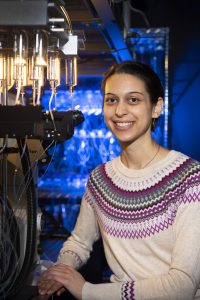
Jess is interested in how sensory information is integrated in the brain to enable adaptive behaviors, and how changes in sensory circuits underlie the evolution of behavior. For her graduate work, she studied how Drosophila larvae integrate olfactory and gustatory cues in early sensory brain areas to inform decision-making during navigation behaviors. As a postdoctoral fellow, she now uses roves beetles and their interaction with ants to examine how new forms of complex, chemosensory-mediated social behaviors can evolve through modifications in neural structure and function.
Best Poster Presentation Winner: Rebecca L Lucia, University of South Carolina
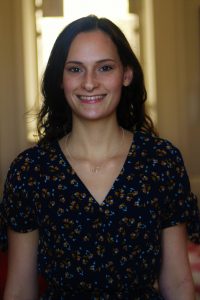
Rebecca is a senior undergraduate studying biology and marine science at the University of South Carolina. Her main focus is on the visual system and adaptations in the snapping shrimp Alpheus heterochaelis. In the past, Rebecca has conducted experiments to determine the spatial vision in snapping shrimp, but this year she is testing the learning and memory capabilities of snapping shrimp using a multiple T-maze. Rebecca loves learning about the amazing adaptations in snapping shrimp and other invertebrates, and she aims to study ecological morphology and climate policy as a graduate student in the coming years.
Best Poster Presentation Honorable Mention: Lydia F Naughton, Bucknell University
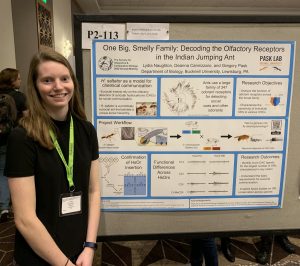
Lydia is an undergraduate neuroscience major at Bucknell University interested in sensory neurobiology. Currently, Lydia is using fruit flies as a transgenic model to express odorant receptors from the ant Harpegnathos saltator in order to characterize how individual odorant receptor genes from H. saltator contribute to overall olfactory detection ability. Lydia also uses electrophysiology to measure the activity of the fly’s olfactory receptor neurons in response to a panel of odorants used in insect communication. In the future, Lydia hopes to combine her interests in both sensory neurobiology and marine biology to study the effects of sensory processing on marine organism behavior.
DNNSB Chair Candidate Biographies
(Ballot: http://burkclients.com/sicb/elections/2020.php)
Rachelle Belanger
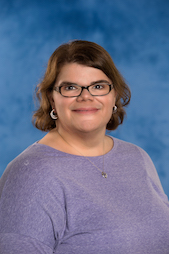
Current Position: Associate Professor and Assistant Chair of Biology, University of Detroit Mercy
Education: B.Sc. University of Windsor (2000), M.Sc. University of Windsor (2002), Ph.D. Bowling Green State University (2007),
Professional Experience: Postdoc University of Alberta (2007-2009)
SICB Activities: Member since 2006; Regular participant as a student poster/oral presentation judge for Division of Neurobiology, Neuroethology, and Sensory Biology and Division of Animal Behavior
Other Memberships: Council for Undergraduate Research, Michigan Society for Neuroscience, Association of Biology Laboratory Educators, Association of College and University Biology Educators
Research Interests: Research in my lab examines the behavioral, neurological and physiological effects of contaminants on aquatic organisms, including fish and crayfish.
Goals Statement: I joined SICB as a graduate student in 2006 and have been regularly attending the annual meeting since I became a faculty member at the University of Detroit Mercy. As a graduate student, attending SICB, I always felt welcomed and supported when I gave both poster presentations and talks. Since joining SICB as a faculty member, I have continued to watch the society grow and increase its commitment to equity and inclusion of diverse scientists. As a faculty member, I now attend and bring my undergraduate student researchers to present their work at the conference annually. This conference and division really fosters a sense of inquiry and belonging. I plan to continue to grow the division and make the division inclusive for both graduate and undergraduate student researchers. Planning more student activities, symposia and planning more seminars and scholar activities for division members are some of my goals as chair. I consider SICB to be my ‘home’ society, and I would be delighted to give back to the society by serving as the chair of the Division of Neurobiology, Neuroethology, and Sensory Biology.
James Newcomb
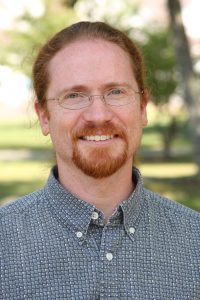
Current Position: Professor and Co-Director of Center for Undergraduate Science Research, New England College
Education: B.S., Chemistry/Physics, Keene State College, 1989; B.S., Zoology, University of New Hampshire, 1998; M.S., Zoology, University of New Hampshire, 2001; Ph.D., Biology, Georgia State University, 2006.
Professional Experience: Assistant Professor, New England College, 2006-2012; Associate Professor, New England College, 2012-2017.
SICB Activities: Member since 2000; DNNSB Divisional affiliation; awarded SICB Grants-In-Aid of Research in 2000; served as judge for Best Student Poster and Presentation Awards for DNNSB, 2016-2020; presenter at SICB annual meeting in 2000, 2006, 2012-2020.
Other Memberships: Council on Undergraduate Research; International Society for Neuroethology; National Association of Biology Teachers.
Research Interests: My research has most recently focused on circadian rhythms, extraocular photoreception, and non-invasive methods of neural stimulation. I am especially interested in approaching these phenomena from a comparative and evolutionary perspective. I use invertebrate organisms, especially nudibranch mollusks, for this research because of the relative simplicity of their organization (e.g., the nervous system), their advantageous phylogenetic position for comparative work, and the ease with which they can be housed and maintained at a primarily undergraduate institution.
Goals Statement: I appreciate the current leadership team for DNNSB and the work that they have done over the last several years in both improving the judging process for DNNSB student posters and presentations, and for trying to increase DNNSB affiliation and participation, especially from the student ranks. I would continue this work, using my affiliation with the International Society for Neuroethology to increase awareness in our scientific community of the value of involvement with DNNSB and SICB. Considering the recent growth that I have witnessed in undergraduate participation at SICB, I think that forming a relationship with Faculty for Undergraduate Neuroscience could result in positive dividends for DNNSB participation. I think that it is important to increase our visibility in the new SICB journal Integrative Organismal Biology, with a greater number of submissions from DNNSB-affiliated authors. I would also strive to increase participation of traditionally under-represented populations in DNNSB. I have been an active participant and judge over the last several years in the Neurobiology division of the Annual Biomedical Research Conference for Minority Students, and this offers potential synergistic opportunities.
